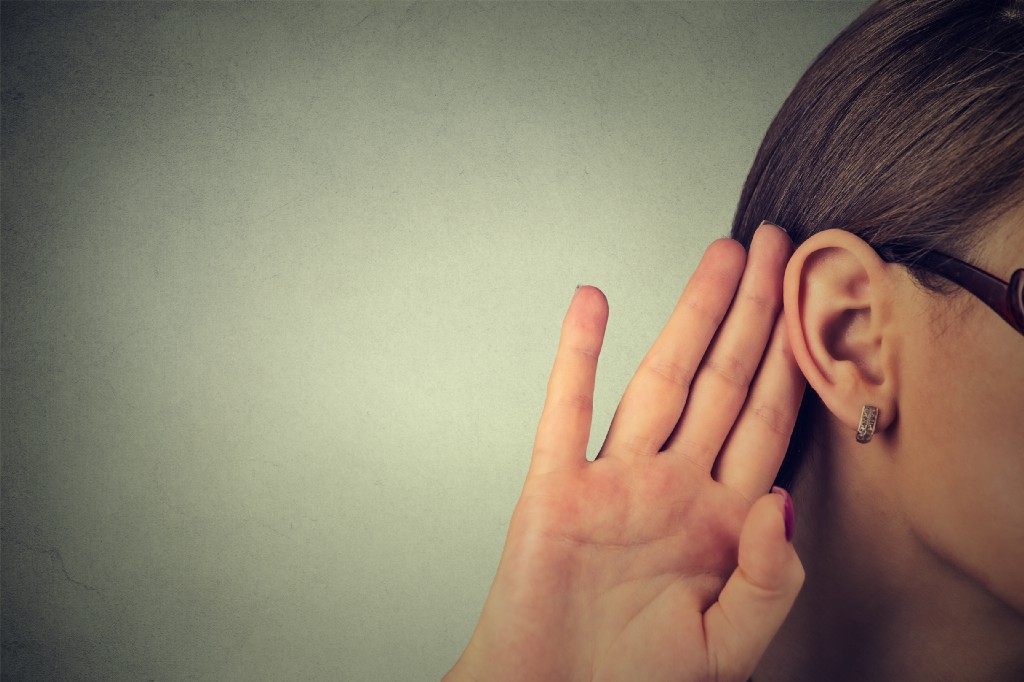It Sounds Weird, But Your Ears Are Aging Fast

1.1 billion people may be at risk. Here’s how you can stop it.
My maternal grandfather suffered from hearing loss for most of my life. During World War II, he flew as a bomber navigator with the Royal Canadian Air Force and his near-constant proximity to the engine had a destructive effect on his hearing. Soon, hearing aids were unable to bridge the gap and it became commonplace to find him sitting quietly during family dinners, appreciative of the company, but unable to hear well enough to participate in conversation.
I will — in all likelihood—never be put in a position where I have to sacrifice my hearing for my country. But that doesn’t mean that my ears are in any better shape than my grandfather’s. According to the World Health Organization, 1.1 billion teens and young adults are at risk for hearing loss, primarily due to the amount of media we shove directly into our ear-holes.
So if you don’t want to be the elderly person explaining to your grandchildren that you lost your hearing by piping EDM directly into your auditory canals, consider implementing some of the following ear safety tips.

Crank up the silence.
In 2013, the journal “Brain, Structure and Function” performed a study on mice, which measured how sound and silence impact the brain. Researchers exposed the mice to two hours of quiet every day and discovered that the silence allowed the mice to generate new cells in their hippocampi, the area of the brain tied to emotion, memory and the nervous system.
Your brain needs silence to perform important functions: It’s in moments of solitude that your mind is able to engage in self-reflection, process key information and allow your imagination to run rampant.
Try to take at least two minutes a day to sit in complete silence. If two hours can have such beneficial results for mice, imagine what two minutes can do for you, a human being.
Embrace quiet at your job.
Regardless of what you think of your office’s open floor plan, it’s affecting the way you work. Noise contributes to your procrastination; it’s the cause of many of your small mental slipups, and it’s the reason why you can’t retain that sentence you just read four times in a row.
The most obvious way to counteract ambient noise is to drown it out. However, your preferred method of noise cancellation may be doing you more harm than good. If you choose to wear earbuds, make sure the buds fit snugly so that you’re not blasting your music to compensate. A better solution is to invest in noise-canceling headphones or earplugs, which drown out noise altogether.
Take noise into consideration when you’re apartment hunting.
Sound torture is real—and the United States has copped to using it. It was implemented most notoriously in 2003 at Abu Ghraib prison, as a method of breaking prisoners down psychologically. As part of the torture, they’d blast songs like Barney’s “I Love You” at 79 decibels for weeks and sometimes months on end.
And while I’ve never experienced sound torture directly, I can tell you that repeated exposure to noise can impact your sanity. In my early twenties, I lived in an apartment in Chicago that was directly above a dance club. And no matter how much sleep I got, I would wake up feeling exhausted and furious. This is because noise can infiltrate your brain, even while you’re sleeping, and mess with your emotions and formation of memory. Noise — even when you’re not conscious of it — can literally stress you out.
Visit Finland.
In 2010, the country of Finland rebranded itself as the go-to destination for travelers seeking solitude. So when your overworked ears need a break from city noise and chatty coworkers, hop a plane to Finland. Just remember to respect their country’s motto: Silence, please.
